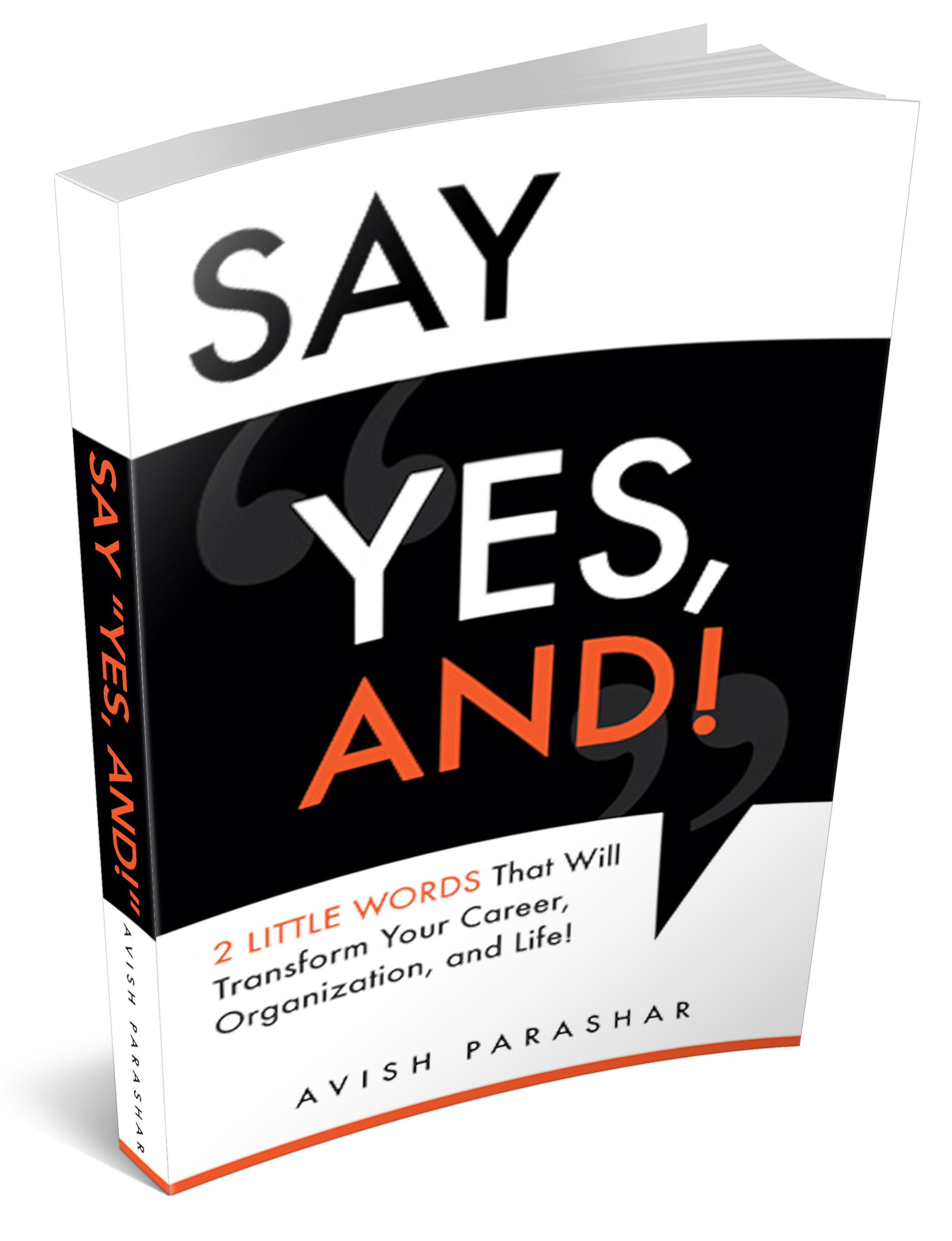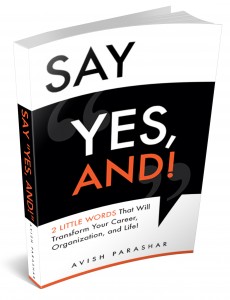For Valentine’s Day: Spreading Unconditional Love with “Yes, And!”
 How often do you “but” the people you love? Have you though about the message that sends?
How often do you “but” the people you love? Have you though about the message that sends?
When it comes to the people we are closest to in our lives – significant others, children, parents, etc. – we want to love them unconditionally. Unconditional love means “to love someone regardless of one’s actions or beliefs.” It’s the kind of love that says, “I love you no matter what.” It’s pretty awesome.
Saying, “I love you” is a great way to express your love. However, too often we say “I love you” and follow it immediately with the word, “but.”
Unfortunately, “but” is the ultimate conditional word.
When you start a sentence with “I love you, but…” you are sending the message that your love has limits. That it has conditions. That it depends on how the other person behaves.
Yes, you may at times need to express displeasure. You may need to correct behavior. You may need to express anger.
However, doing any of those things by starting with “I love you, but…” does not achieve the goal you think it does. You want the message to be “I want you to know that even though I am getting mad at you, I still love you.”
Though that’s what you want the message to be, and though that’s what your words seem to literally say, that doesn’t necessarily mean that’s the meaning being conveyed.
In learning, the “Law of Recency” says that “the most recent response is most likely to reoccur.” Basically, that means that people remember what happens last. If you lead with “I love you but…,” guess what will be remembered?
Yup. Whatever comes after the “but.” Which is the negative part.
There are three ways to avoid this:
1) Drop the “I love you” altogether – Not the best solution, I’ll admit. But better to just give your feedback in that moment without tying it to the level of your love. Of course, this strategy only works if you make it a point to tell the person that you love them, later, without qualification.
2) Move the “I love you” to later – Give your feedback, criticism, whatever, and then say “I love you.” Let that be the last thing they remember.
3) Switch to “I love you and” – This is the most effective strategy. It’s also the most difficult. When you find yourself starting to say, “I love you, but…” switch to “I love you, and…” It will be difficult, because you can’t just replace “but” with “and” and say the same thing you were going to anyway. You’ll have to rephrase. So, “I love you but when you leave your dirty clothes on the floor it pisses me off,” becomes “I love you and I’d really appreciate it if you would remember to put your clothes in the hamper.” The “and” primes your mind to go down a more positive path.
Is this just semantics? Could be. But the words we choose are one of the main ways we communicate with each other. Why wouldn’t you want to carefully select them to make sure the people you love know that you love them unconditionally?
For the people you love the most, for the ones who you truly do love unconditionally, stop saying, “I love you but…” Switch to “I love you and…” and let them know how much you love then.
What better gift could you give your loved ones on Valentine’s Day?
***
 Want to learn more about the idea of saying “Yes, And!”? Then sign up to receive your free Pre-Release copy of Avish’s new book, Say “Yes, And!” between Feb 20 and Feb 23!
Want to learn more about the idea of saying “Yes, And!”? Then sign up to receive your free Pre-Release copy of Avish’s new book, Say “Yes, And!” between Feb 20 and Feb 23!
About
By Avish Parashar. As the world's only Motivational Improviser, Avish uses techniques from the world of improv comedy to engage, entertain, and educate audiences on ideas around change, creativity, and motivation. Connect with Avish on Google+
 RSS
RSS Email
Email


 Facebook
Facebook Twitter
Twitter LinkedIn
LinkedIn YouTube
YouTube